Draft Full Paper Due:
Apr. 05, 2026
Notification of Draft Paper Acceptance:
Apr. 25, 2026
Final Manuscript Due:
May. 15, 2026
Author Registration Deadline:
May. 15, 2026
Conference Dates:
Sept. 04-06, 2026
INVITED SPEAKER OF ICIPMC 2025
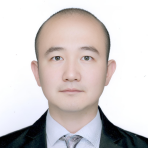
Assoc. Prof. Guangxu Li
Tiangong University, China
Guangxu Li received the Ph.D. degree from the Kyushu Institute of Technology, Japan, in 2013. He is currently an Assistant Professor with the School of Electrical and Electronic Engineering, Tiangong University, Tianjin, China, where he joins the Tianjin Key Laboratory of Optoelectronic Detection Technology and System. From 2020 to 2021, he was a Visiting Scholar with the Department of Bioengineering, University of Washington, Seattle. His research interests include signal processing and computer aided diagnosis. After joining academia, he became a member of the Council of the Tianjin Stereology Society.
Speech Title: "The Eye: Lamp of Body and Visual Intelligence"
Abstract: In this talk, the speaker lists out two issues: the computer aided diagnosis for systemic diseases and the bio-inspired computer vision. Many systemic conditions have ocular signs, which can aid in early diagnosis. The visual intelligence based screening system demonstrated superior diagnostic effectiveness for systemic diseases. The speaker firstly introduces the applications of visual intelligence algorithms in managing systemic diseases by analyzing ophthalmic images. On the other hand, breakthroughs in the field of machine learning such as the convolutional neural network theory, adaptive optics et al were emulated by biological visual systems. Some recent works on a refractive accommodative model for training auto-fucus neural networks were also introduced in this talk.
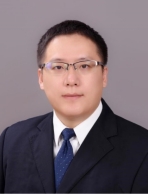
Prof. Yijun Yang
Xi'an Jiaotong University, China
Yi-Jun Yang is now a
professor in school of computer science and technology of
Xi'an Jiaotong university and R.D. director of CSSC SEAGO
system and technology Co., Ltd. He received his Ph.D degree
in the Department of Computer Science and Technology at
Tsinghua University in 2008. He has had faculty positions in
the Shandong university and has been an associate Professor
in school of computer science and technology in 2012-2019.
His research interests are in Computer Aided Design,
Computer Graphics and most recently in Geometric Engine
Architecture and Algorithms. He is a member of CCF GDC, CAD
and CG Special Committee. He served as the co-organization
chair of CAD/Graphics 2021 and GAMES 2021. He received the
excellent achievement award of high institute in 2023.
Speech Title: "Parameterization of Freeform Curves and Surfaces"
Abstract: The parameterization of freeform curves and surfaces plays an important role in geometric design and computer graphics. The parameterization of freeform curves and surfaces highly affects the subsequent operations. The uniformity, conformality and equiareality are key properties of the optimal parameterization. Different reparameterization methods are utilized to optimize differential geometry properties of the freeform curves and surfaces, and the superiority and disadvantage of different transformation methods are analyzed and compared. The future research trends of the surface parameterization are discussed. Examples are given to show the performance of different reparameterization algorithms for fairness, rendering and tessellation applications.

Assoc. Prof. Xiaoyue Jiang
Northwestern Polytechnical University, China
Xiaoyue Jiang received the M.S. and Ph.D. degree from Northwestern Polytechnical University, Xi’an, China, in 2003 and 2006, respectively. Then she worked as an associated researcher in Vrijie University of Brussels (Belgiumn), the University of Birmingham (UK), and Queen’s University of Belfast (UK) from 2006 to 2012. She is currently an associate professor with the School of Electronics and Information, Northwestern Polytechnical University since 2012. Her research interests include image processing, computer vision and machine learning.
Speech Title: "TIntrinsic Image Analysis and Its Applications for Image Enhancement"
Abstract: Illumination is a key factor in the composition of an image, but it also greatly affects the appearance of the image. The same scene or object may look dramatically different in different lighting conditions. Thus, illumination is always a challenge factor for high-level computer vision problems, such as detection, segmentation, recognition, and etc. In order to reduce the impact of lighting variations, existing researches tends to solve this problem in two aspects. One is to extract the illumination-invariant features, the other is to extract the lighting components from the images. In this talk, we will focus on the method of intrinsic image analysis, which is to decompose input images into reflectance and shading components. The reflectance components are independent of lighting conditions, which represent the intrinsic feature of the scene. The intrinsic image decomposition is an ill-posed problem, some extra cues are needed for solve this problem. Firstly, some traditional methods for intrinsic image decomposition will be introduced. Then the deep learning based neural networks will be introduced as well. Also, we will discuss about the applications for intrinsic image analysis.
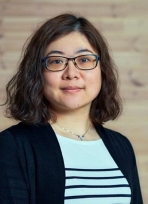
Prof. Xiaobai Li
Zhejiang University, China/University of Oulu, Finland
Dr. Xiaobai Li (Senior Member, IEEE) received the B.Sc. degree in psychology from Peking University, Beijing, the M.Sc. degree in biophysics from the Chinese Academy of Sciences, Beijing, and the Ph.D. degree in computer science and technology from the University of Oulu, Finland. She is currently a ZJU100 Professor at the Institute of Cyber Science and Technology, Zhejiang University, and she is also an Adjunct Professor at the Center for Machine Vision and Signal Analysis, University of Oulu. Her research interests include computer vision and machine learning, with a focus on facial video analysis and related applications in Biometrics, AI security and affective computing. Dr. Li chaired several international workshops at the conference on Computer Vision and Pattern Recognition (CVPR), International Conference on Computer Vision (ICCV), International Conference on Automatic Face and Gesture Recognition (FG), and ACM Multimedia. She is an Associate Editor of IEEE TRANSACTIONS ON CIRCUITS AND SYSTEMS FOR VIDEO TECHNOLOGY (TCSVT), Frontiers in Psychology, and Image and Vision Computing.
Speech Title: "Remote Physiological Signal Sensing for Emotion, Health, and Security"
Abstract: Photoplethysmography (PPG) is one of the most important physiological signals of human bodies. It can not only indicate human’s health status, but also represent human’s emotional feelings and psychological status. Traditional ways of PPG measurement require contact sensors attached to human bodies, which is not convenient and constraint the applications. The report focuses on facial video-based remote PPG measurement technology. We first introduce the development of latest rPPG measurement methods, and then present its application in multiple regions including affective computing, healthcare and security.
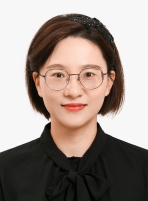
Prof. Yang Yang
Anhui University, China
Yang Yang is a Professor at the School of Electronic and Information Engineering, Anhui University. She received her Ph. D. degree in Information and Communication Engineering from University of Science and Technology in 2013. She was awarded the title of "New Talent in Teaching" from Anhui Provincial Department of Education. She serves as a member of the CCF Quantum Computing Committee, a member of the CSIG Digital Forensics and Security Committee, and a member of the CSIG Female Working Committee. Her research interests include AI security, quantum artificial intelligence, and image processing technology.
Speech Title: "Quality Assessment and Generation Detection in AIGC Era"
Abstract: With the rapid development of artificial intelligence technology, AI-generated content (AIGC) has gradually become an important part of our life and work. By analyzing the value and risk issues of AIGC, this report makes a comprehensive discussion on the quality assessment and generative detection in the AIGC era from three aspects: the status quo of safety development, quality assessment and generative detection, and introduces a variety of effective generative text, image and video quality assessment and generative detection technologies, so as to promote the safe, reliable and sustainable development of AIGC technology.

Prof. Yi-Jun Yang
Xi'an Jiaotong University, China
Yi-Jun Yang is now a professor in school of computer science and technology of Xi'an Jiaotong university and R.D. director of CSSC SEAGO system and technology Co., Ltd. He received his Ph.D degree in the Department of Computer Science and Technology at Tsinghua University in 2008. He has had faculty positions in the Shandong university and has been an associate Professor in school of computer science and technology in 2012-2019. His research interests are in Computer Aided Design, Computer Graphics and most recently in Geometric Engine Architecture and Algorithms. He is a member of CCF GDC, CAD and CG Special Committee. He served as the co-organization chair of CAD/Graphics 2021 and GAMES 2021. He received the excellent achievement award of high institute in 2023.
Speech Title: "Optimal Parameterization of Freeform Surfaces"
Abstract: The parameterization of freeform surfaces plays an important role in geometric design and computer graphics. The parameterization of freeform surfaces highly affects their rendering and tessellation results. The conformality and equiareality are two key properties of the optimal parameterization. The only rational Bézier surfaces with uniform iso-parametric curves are bilinear surfaces, and the only rational Bézier surfaces with conformal parameterization are rectangles. Different reparameterization methods are utilized to optimize differential geometry properties of the freeform surfaces, and the superiority and disadvantage of different transformation methods are analyzed and compared. The future research trends of the surface parameterization are discussed. Examples are given to show the performance of different reparameterization algorithms for rendering and tessellation applications.
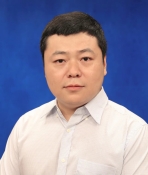
Assoc. Prof. Zongyong Cui
University of Electronic Science and Technology of China, China
Zongyong Cui, associate professor at the School of Information and Communication Engineering at UESTC. His research is about intelligent radar image interpretation, with a focus on the integration of SAR target detection and recognition, incremental learning, and SAR small sample target recognition. He has successively led scientific research projects from National Natural Science Foundation, National Defense Key Laboratory, and so on. He has published over 70 high-level papers and granted more than 20 national invention patents; Served as a reviewer for ISPRS Journal of Photography and Remote Sensing, IEEE TGRS, IEEE TAES, IEEE JSTAR, and other journals.
Speech Title: "SAR Target Detection via Deep Learning"
Abstract: As one of the key technologies in SAR image
interpretation, SAR target detection plays an important role
in both military and civilian fields. In recent years, with
the application of artificial intelligence technology, SAR
target detection methods based on deep learning have shown
significant performance advantages, especially for large
scale high resolution SAR image data. However, due to the
high cost of acquiring SAR images, it is difficult to obtain
a large number of images with rich feature information at
once. Therefore, SAR target detection faces challenges such
as complex scenes, limited samples, and data dynamic
changes. On the basis of summarizing the development trends
of large scale SAR target detection methods in recent years,
this report focuses on issues such as cross scale target
detection, small sample target detection, and incremental
target detection, to introduce some of our progress in the
field of SAR target detection.
